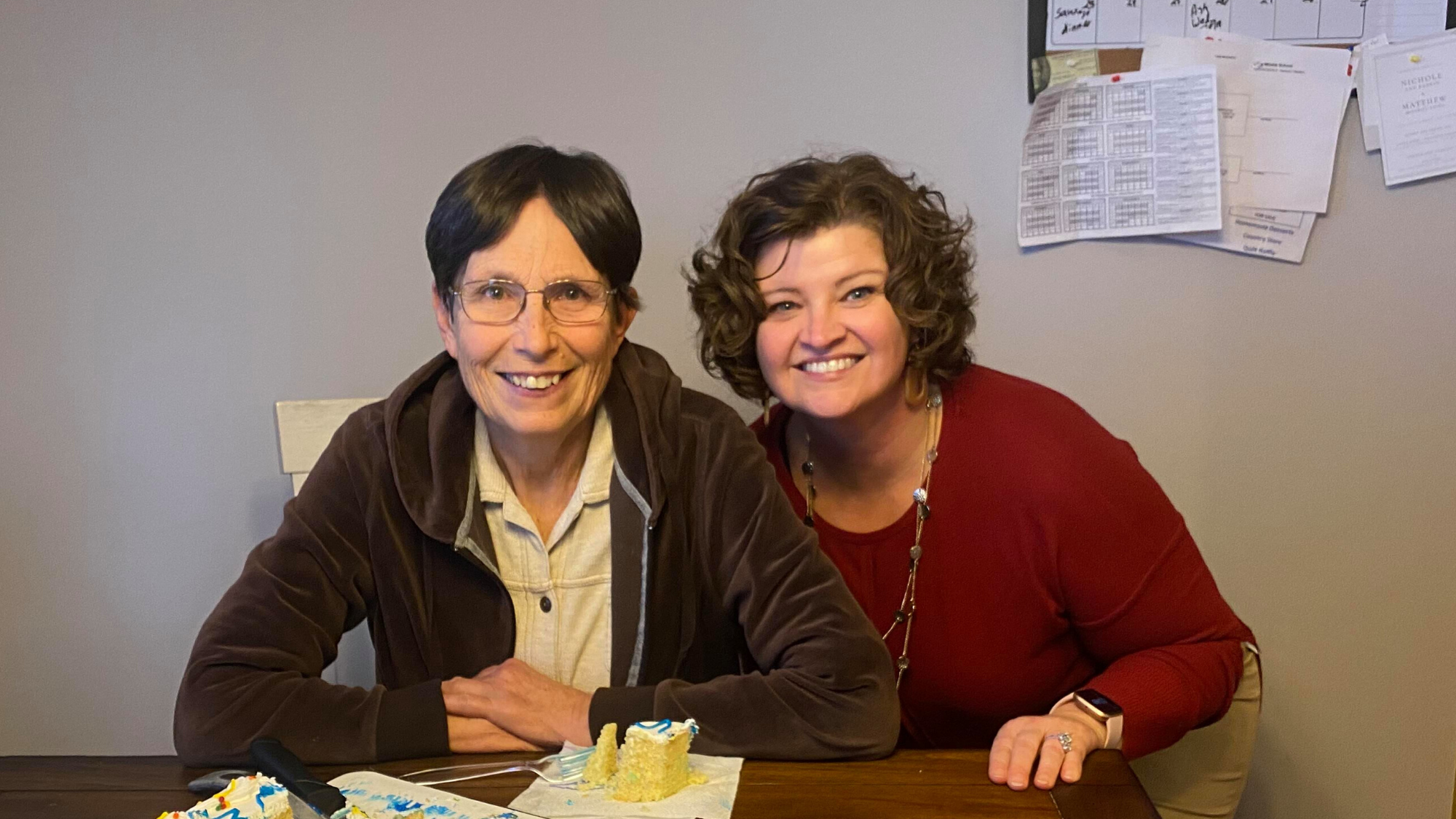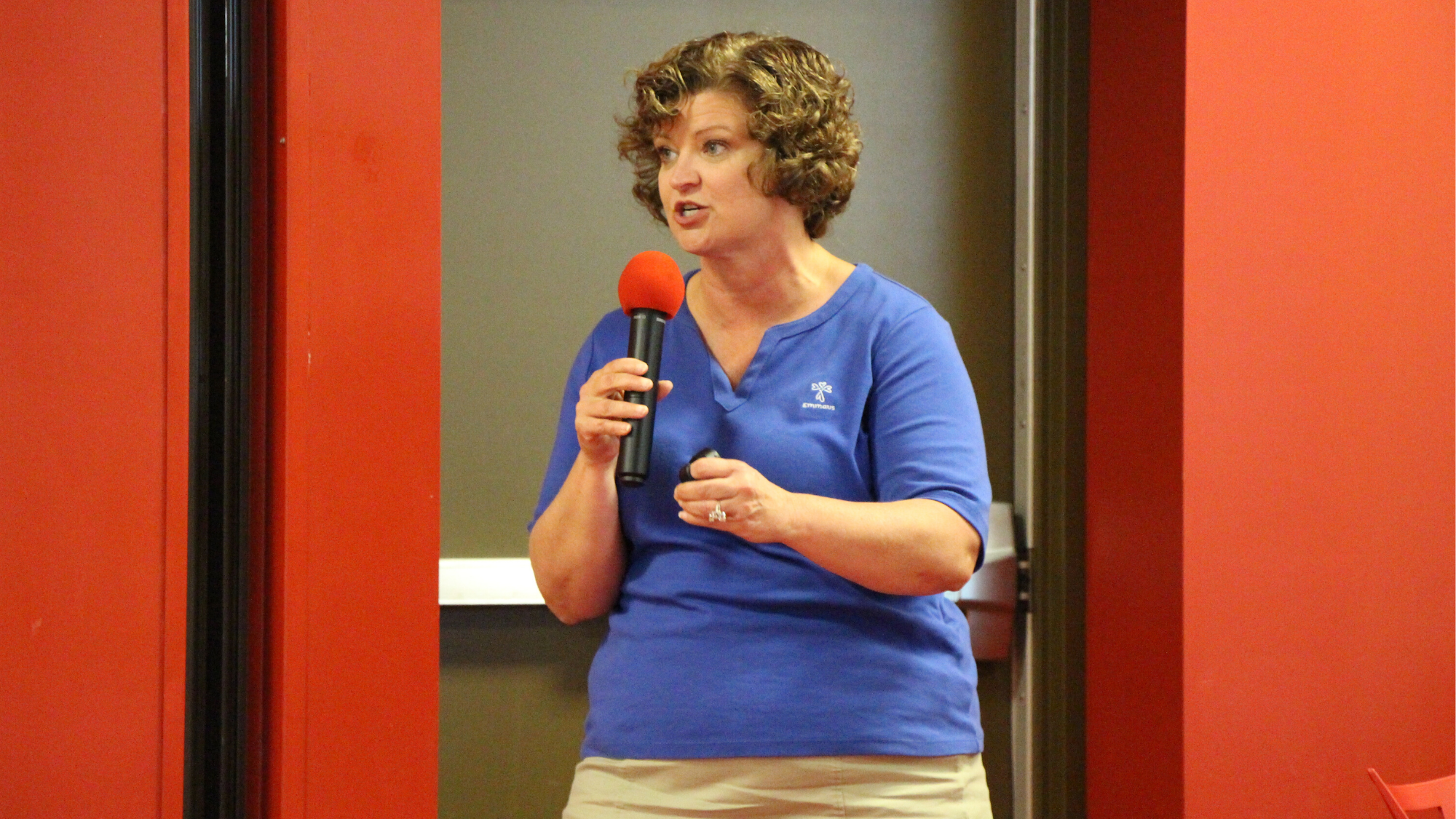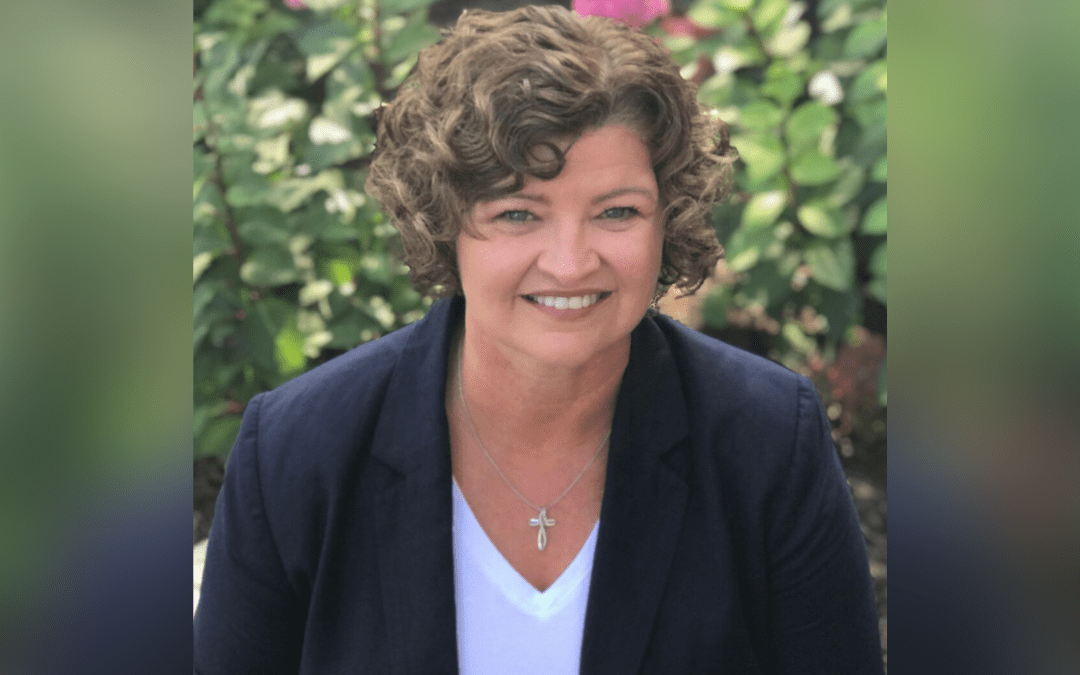Written by Lea Konczal Data Reporter, St. Louis Business Journal. Shared from the St. Louis Business Journal.
Cindy Clark had barely been with Emmaus Homes six weeks when she suddenly found herself running the organization.
Clark, who had a background in accounting and was the nonprofit’s new CFO, stepped into the interim CEO position when her former boss resigned in August 2009. “It was like drinking from a fire hose,” Clark said. Nonetheless, the role fulfilled her career goal of leading a nonprofit, and Clark, who later became president and CEO, has been with Emmaus ever since.
In conjunction with this week’s Largest Nonprofit Organizations List, we spoke with Clark about how she is leading Emmaus Homes through its next batch of challenges. The conversation has been edited for length and clarity.

Emmaus President & CEO, Cindy Clark, celebrating Emmaus team member Work Anniversary
Emmaus Homes is a Christian nonprofit that aids people with developmental disabilities. What is the organization’s main service offering? The primary service that we run here at Emmaus is called individualized supported living. Under this model, most of our clients have roommates in order to share their living expenses, but their plans are individualized to their own lives. Emmaus provides the necessary support for them to be as independent as possible based on their own abilities. We have direct support professionals that provide that service in the client’s home 24 hours a day, seven days a week.
Emmaus also runs a host home program. What is that like? Think of the host home like adult foster care. In this model, the person with a disability would move into your home and really become part of your family unit, and participate in your family in your day-to-day life. Most of our host homes have grown out of long-term relationships that have been built between a staff person and a client out of our individualized supportive living. It’s a very stable service and we’ve seen great success with it.
What’s the biggest challenge Emmaus Homes faces? Without a doubt, it is the workforce crisis. The majority of our staff are direct support professionals, who provide 24-hour support in our homes. And that class of employee is going to be one of the fastest-growing across the country in the next decade and beyond. So as seniors age and the prevalence of disability increases, there’ll be more folks that need this type of service, which really is increasing the demand. So when you take the lack of funding — this is a Medicaid funded program, so it’s always fighting for state funding, and has been underfunded for decades — and you combine that with the lowest unemployment rate in perhaps 50 years, along with minimum wage increases, that’s putting further pressure on our ability to be competitive. Our vacancy rate for direct support professionals can hover in excess of 20%.

Emmaus President & CEO, Cindy Clark, with Emmaus client and guardian
How are you addressing this problem? By learning to be creative about the service. The host home program is a way to look at providing our service in a more affordable way. Or by the use of technology — there’s so much technology out there, and Missouri has just entered into becoming a Technology First state, as related to services for people with developmental disabilities. So we’re really looking at how we can use technology to enhance people’s independence as well as to reduce the workforce.
How are you using technology at Emmaus Homes? We have not implemented this type of technology yet, but the most common right now across the industry is what they call remote monitoring. It’s cameras and other assisted devices in homes, so overnight if something happened, you could speak to somebody on the other end of the technology, tell them what your problem was and then they could dispatch staffing in fairly short order, if that was needed. But there are all kinds of creative ways to use technology to enhance the lives of people with disabilities. For example, in our homes, we’re using a lot of technology you might find in your own home, like Alexa, and smart plugs and smart lights to enhance people’s independence.
Does it take a special kind of person to work with someone with developmental disabilities? I believe that in a perfect world, every person would have a meaningful relationship with a person with a (developmental) disability. Because it does just as much to enhance your life as it does the life of the person with a disability. Having said that, I don’t think it’s a one-size-fits-all job. But for folks who believe that they are caring and compassionate and want to make a difference in the world, and have some time to offer, I think that this job could be a short-term or a long-term opportunity for anybody to get exposure.


